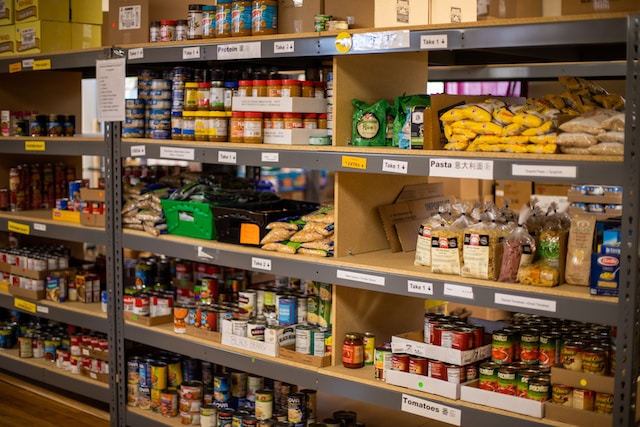Katie Ormrod, Manchester Metropolitan University
After an invite to present my research at the ACRE conference at Edge Hill, I welcome this opportunity to share it with a wider community. This post follows on from my conference abstract, detailing my research which is a White Rose Doctoral Training Partnership funded project.
Why research food banks?
We currently find ourselves in quite uncertain times in the world, as we experience inequalities, conflicts, climate change, political unrest and economic instability to name but a few issues, and all in the aftermath of the COVID-19 pandemic. In Britain we are also facing a number of challenges, but one of the most prominent right now is the cost of living crisis, with people struggling to pay their rent and bills and sometimes being unable to feed their families, as living standards decline. Demand for food banks has been steadily rising, as more people in Britain come up against food insecurity, in a wider experience of poverty which can affect many areas of life.
However, more understanding is needed about the further potential of food banks. Therefore, as a food bank volunteer of 5 years, and also as a PhD student, I have decided to meet this challenge through my own research.

I am mindful that my contribution will be small, but hopeful as I join the research participants as we embark on a process of learning and transformation.
How does critical global citizenship education link to food banks?
The project looks at the potential for food banks as a space for critical global citizenship education (CGCE). It presents an opportunity to look at one of the ways that an educational concept such as CGCE can reach further than the academy and formal education, manifesting and potentially flourishing in unexpected and new learning spaces in informal contexts for adult learners. Global citizenship education (GCE) is also mentioned in the United Nations Sustainable Development Goals, as part of Goal 4 which focuses on equitable and quality education for all including lifelong learning. It is therefore important to consider how GCE can reach all potential learners. So, with this in mind, CGCE could plant the seeds for a critical engagement with the world from within the food bank space, with participants who may experience multiple forms of marginalisation amidst the food insecurity which causes people to visit a food bank. CGCE could invite the people in the food bank to think about relationships, injustices and how they are driven and sustained, complicities, how to move forward, their places in the world, and of course food.
How will the project involve participants in the research?
Ethnographic in design, this project also aims to involve participants in the co-creation of knowledge about themselves, engaging them in creative participatory methods, drawing on their knowledge and experience. Through post and decolonial theories the project explores how participants engage with local and global injustices at local and global level, whilst learning about themselves, each other and their relationships to the wider world.
As well as reframing the food bank as a potential critical space for learning, the project will also make a contribution to the existing knowledge surrounding CGCE.
The ACRE 2023 conference was hosted by the IDI Research Network. Find out more about getting involved with our research networks.

One response to “Food banks as a space for critical global citizenship education”
I appreciate very much your contribution to this most important concern .The food bank project has included much more than provision of sustainable food to challenge immediate hunger and thirst.we may need to con sider more world future needs for sustainance and food security.Let us look more closely at food bank project for future food security.